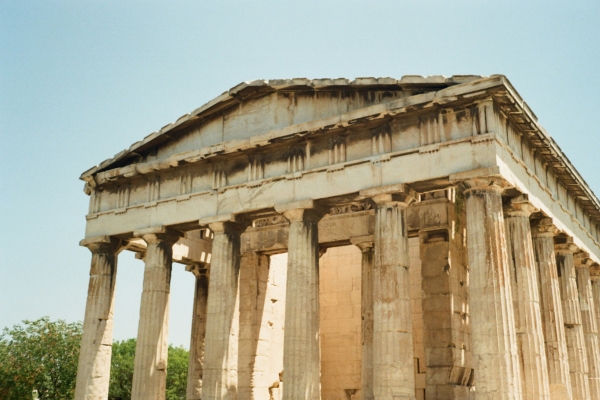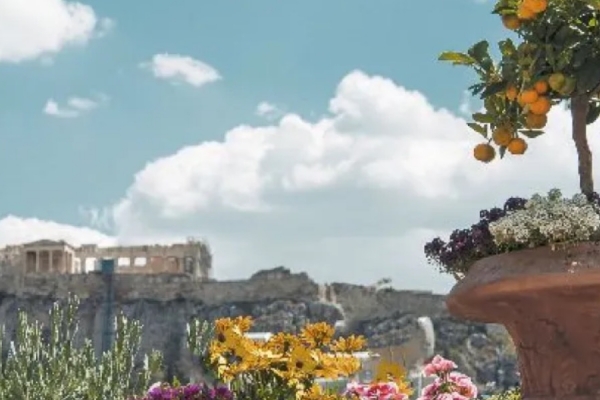By Rosie Eden
One of Athens’ most unique features is its ability to appeal to a versatile group of visitors. From food lovers to history buffs, this city offers adventures for all kinds of interests. For those who wish to see Athens through the eyes of the great ancient philosophers, here are some “must-see” destinations.
1) Aristotle’s Lyceum
Constructed in 355 B.C., Aristotle’s Lyceum once served as a school dedicated tonurturing both the minds and bodies of pupils. The site features the foundations of ancient lecture halls and classrooms, as well as a gymnasium. Aristotle’s numerous contributions to the fields of logic, ethics, and politics were cultivated at this very location. As you take in your surroundings, it’s easy to picture Aristotleroaming these halls, engaging in philosophical discussion.
2)Plato’s Academy
This open-air archeological site was constructed in 388 BCEand considered the birthplace of Western philosophy. Today, Plato’s Academy offers visitors a tranquil refuge from the busy city. Located in a sacred grove, the modest site is adorned with plaques containing information about the history and significance of the Academy. Like Aristotle’s Lyceum, the Academy includes the ruins of a gymnasium, allowing one to picture the layout and the activities that would have been performed there. I recommend familiarizing yourself with some of Plato’s famous dialogues before visiting, as the grounds offer a wonderful environment for reflection and appreciation.
3)The Agora
Philosophical discussion in ancient Athens was not simply confined to academic spaces. The Agora was the center of public life in Athens, where Athenians gathered to discuss politics and philosophy as well as their daily affairs. As such, it served as the perfect backdrop for Socrates’ philosophical pursuits and the setting of many dialogues. Famously, the trial of Socrates, in which he was accused of impiety and corrupting the youth, took place at The People’s Court, located in the Agora. One can imagine Socrates walking through the space, sparking conversation with his incessant questioning. I strongly encourage visitors to read the Apology of Socrates before visiting the Agora. This dialogue will provide a good sense of how Socrates occupied the ancient siteand raises questions about the ideal of freedom of intellectual thought.
4)The Piraeus
The opening of Plato’s Republicreads “Yesterday I went down to the Piraeus.” Those familiar with The Republic and specifically with Socrates’ cave allegory might notice that, within the greater context of the text, this line contains a deeper meaning beyond what it literally states. The Piraeus functioned as a port in both ancient and modern times. In ancient Athens, the Piraeus was used for trade and military purposes––today, you will see throngs of people boarding ferries for their island getaways. The dialogue of The Republic is initiated during Socrates’ and Glaucon’s trip to the Piraeus for a festival. The conversation eventually turns towards weighty subjects such as justice, the ideal state, and the nature of reality. Perhaps in conducting your own journey to the Piraeus, you will find yourself similarly inspired.













